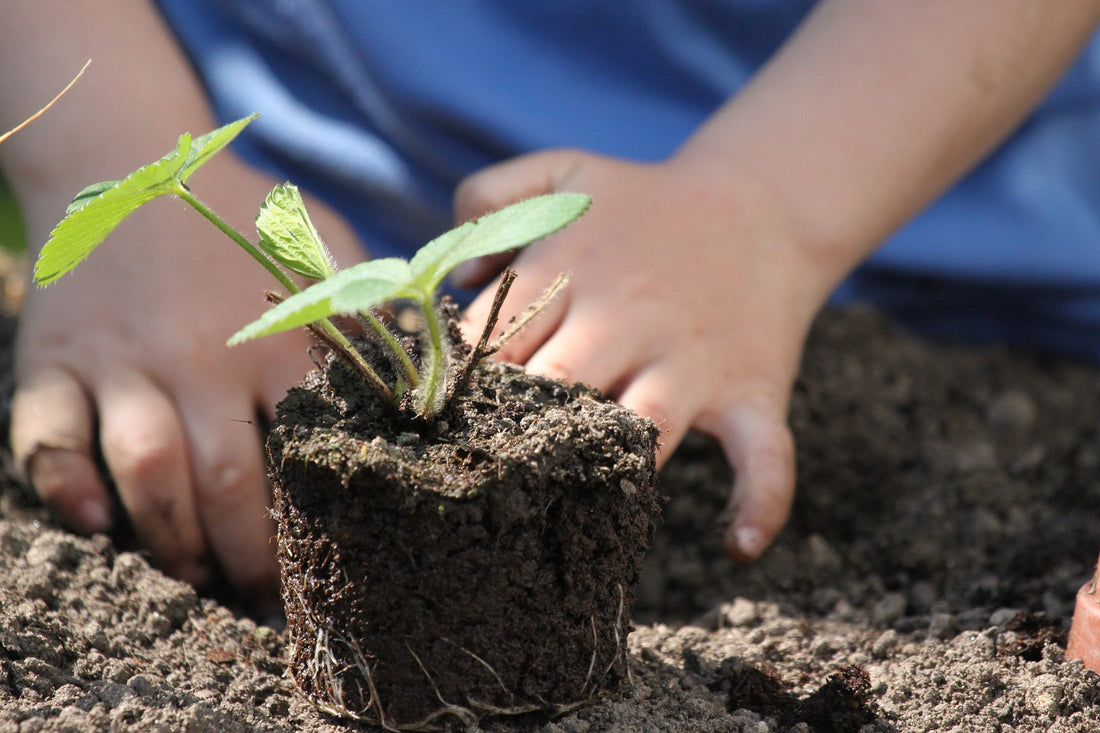Updated: February 12, 2024
As gardeners and outdoor enthusiasts, we are always looking for ways to nurture and care for our plants. One important aspect of plant care is choosing the right fertilizers to nourish and support their growth. While synthetic fertilizers have long been the go-to choice for many gardeners, there is an alternative option that is gaining popularity: organic fertilizers.

But what exactly are organic fertilizers, and why are they becoming a more popular choice among gardeners? In this blog, we will explore the benefits of using organic fertilizers and provide tips for incorporating them into your gardening routine.
First, let's define what we mean by "organic fertilizers." Simply put, organic fertilizers are plant or animal-based products that are used to supplement the nutrients in soil. This is in contrast to synthetic fertilizers, which are made from inorganic substances such as chemicals and minerals. Some common types of organic fertilizers include compost, animal manure, and bio-based fertilizers like bone meal or blood meal.
So, what makes organic fertilizers a better choice for your garden? One of the main benefits of using organic fertilizers is that they help improve the overall health and structure of soil. Synthetic fertilizers can sometimes disrupt the delicate balance of nutrients in soil, leading to unhealthy plants and soil that is prone to erosion and compaction. In contrast, organic fertilizers work with the natural processes of the soil, adding nutrients and improving soil structure over time.

Organic fertilizers can also benefit your plants in a number of ways. In addition to providing essential nutrients, organic fertilizers can help improve the overall health and growth of plants. They can also help plants become more resistant to diseases and pests, as a healthy, well-nourished plant is better able to withstand these challenges.
Another advantage of organic fertilizers is their environmental benefits. Synthetic fertilizers can leach into waterways and contribute to water pollution, while organic fertilizers are biodegradable and do not contribute to chemical runoff. Organic fertilizers such as NutriHarvest® Organic Fertilizers are especially manufactured by capturing waste phosphorus and nitrogen for preventing nutrient runoff into natural waterways. Organic fertilizers can also support soil biodiversity, as they provide a habitat and food source for beneficial microorganisms that help maintain healthy soil.
So, how can you start using organic fertilizers in your garden? One of the easiest ways is to start composting. Composting is a natural process, but time consuming process that breaks down organic material into a rich, nutrient-rich soil amendment. You can easily create your own compost bin at home, or purchase compost from a local supplier.

Another option is to use animal manure as a fertilizer. Manure from herbivores (such as cows or goats) is generally considered a good choice for gardens, as it is high in nutrients and relatively low in seeds and weed seeds. It's important to properly age and compost manure before using it in your garden, as fresh manure can burn plants.
There are also many bio-based organic fertilizers available, such as bone meal, blood meal, and kelp meal. These fertilizers provide a specific set of nutrients and can be used to supplement your plants' needs. It's important to follow the application instructions on the fertilizer label, as over-fertilizing can lead to excess foliage growth at the expense of fruit or flower production.
Incorporating organic fertilizers into your garden or farm routine is a simple, sustainable way to support the health and growth of your plants. By choosing organic fertilizers, you can improve the health of your soil, benefit your plants, and support the environment. So next time you are fertilizing your garden, consider making the switch to organic fertilizers such as NutriHarvest® organic fertilizers and start nourishing your soil for healthy harvest.




